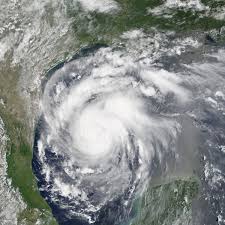Hurricane Harvey, in isolation, was not “the catastrophe” the reinsurance industry has been waiting for to reverse the softening of market pricing, according to analysts at Credit Suisse.
 Joining other analysts and observers, the Credit Suisse team of Ryan Tunis and Crystal Lu are sceptical of the ability of hurricane Harvey to move re/insurance market pricing, even for those companies hit hard by losses.
Joining other analysts and observers, the Credit Suisse team of Ryan Tunis and Crystal Lu are sceptical of the ability of hurricane Harvey to move re/insurance market pricing, even for those companies hit hard by losses.
“There is unlikely to be a meaningful dent in industry excess capital. We do not expect those taking losses to be rewarded with higher rates going forward,” the analysts explained in a note yesterday.
With estimates for combined wind, surge and flood insured losses seemingly converging around a $10 billion mark, although it’s still very early days to predict the final industry loss that insurers and reinsurers will bear, Credit Suisse said that the stock market seems to imply around a 1-in-50 year hit for reinsurers, not seen as sufficient to move pricing.
For the major primary insurers, the likes of Allstate, Travelers, XL and others, Credit Suisse expects that Harvey will be enough to tip U.S. P&C insurers towards having above average catastrophe loss years, even taking into consideration the below average first-half of the year.
They expect a significant proportion of the wind related losses from Harvey to be retained by the major primary insurers, with smaller regional players more likely to be calling on reinsurance arrangements.
The Texas Windstorm Insurance Association (TWIA) could retain all of its losses from Harvey, if it is indeed a roughly $10 billion to $15 billion industry event at most, the analysts believe. TWIA retains $2.7 billion of its losses before reinsurance and catastrophe bonds kick in.
The larger national P&C insurers will retain most of their wind losses, aside perhaps from Allstate which has a $500 million per-occurrence reinsurance arrangement that could help to make its net loss much lower than its gross exposure, under certain scenarios.
The analysts explain the potential hit to reinsurers from Harvey’s winds, “We expect the reinsurance industry to experience most of its wind damage exposure through smaller Texas mutual companies that tend to have low attachment points.”
The Credit Suisse analysts agree with our assessment that the BFIP’s $1 billion reinsurance layer may be on the hook for losses, citing, “A reasonably high likelihood, in our view, that reinsurers will be on the hook for some losses associated with NFIP.”
Auto insurance could be a surprise hit for some reinsurers, as “It’s possible, in our view, that auto losses will be a higher percentage of the overall insured loss total given the surprising magnitude of the flood and relative lack of NFIP penetration,” the analysts explained.
In fact, State Farm has reported almost 7,000 auto claims already, with a large number expected to be a total loss due to cars standing in flood waters or being submerged.
65% of the private market losses from flood are expected to be dealt with by commercial insurers and reinsurance firms.
It’s worth remembering here that major reinsurers are often also large commercial insurers, particularly in major cities such as Houston. So the commercial property flood impact could be felt by some larger global players, both on the primary and reinsurance sides of their books.
Credit Suisse’s analysts see Allstate on the hook for a loss of around $500 million, Travelers from $300 million to $600 million, AIG and Chubb as both between $225 million to $500 million and XL with $130 million to $270 million, all based on an industry loss in the range of $7.5 billion to $15 billion from hurricane Harvey.
With a major proportion of losses retained and an unlikely ability to increase rates in the wake of Harvey, the event will be a drain on some companies abilities to continue returning capital to shareholders. But it is not the catastrophic event the reinsurance sector has been waiting for on its own, the analysts believe.


